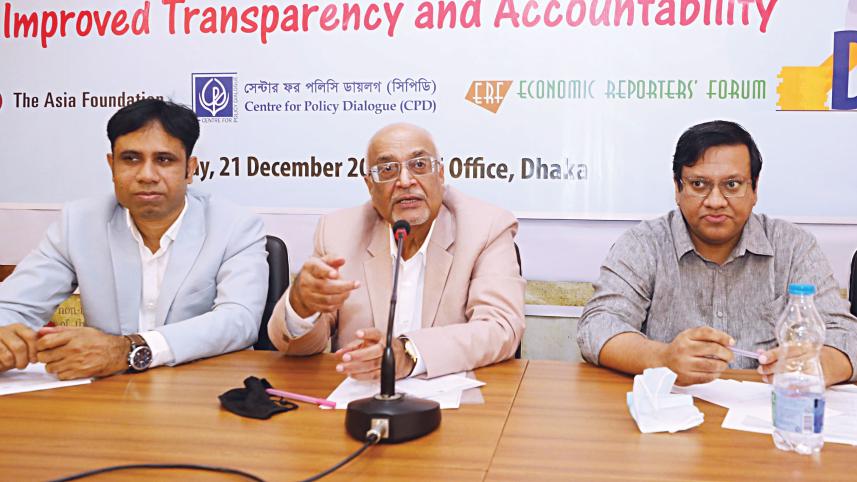‘Data blindness’ could tarnish country’s image

Policymakers in Bangladesh fail to understand the importance of having accurate financial and economic data even though these statistics are needed now more than ever, according to Debapriya Bhattacharya, a distinguished fellow of the Centre for Policy Dialogue (CPD).
The country's looming graduation to developing status has increased the demand for such information a hundred-fold, he said.
And although the matter has been acknowledged verbally, there is no evidence that adequate measures are being taken, Bhattacharya added while terming the situation as "data blindness".
His remarks came at a discussion on the importance of fiscal data for transparency and accountability, jointly organised by The Asia Foundation, CPD and Economic Reporters' Forum (ERF) at the ERF office yesterday.
Bhattacharya went on to say that the authorities concerned do not understand that data could be a driving force behind the country's socio-economic development.
After Bangladesh's graduation from the least developed category, adequate support from external sources will not be available if there is no timely supply of relevant data.
"It will also tarnish the country's image," he said.
The country also lacks an understanding on the effectiveness of such information towards the optimum utilisation of limited resources, which is not consistent with the modern world, he added.
Bhattacharya, also a member of the UN Committee for Development Policy (CDP), said the dearth of information and data was not consistent with the country's objective to fulfil the sustainable development goals by 2030, and become a developed country by 2041.
Researchers as well as the public representatives are not getting the latest information and as a result, it is not possible to formulate a qualitative evaluation on education, health and other major sectors.
To overcome this situation, there is a need to create demand for data and researchers, public representatives and the media would have to play their due roles in this regard, he added.
Towfiqul Islam Khan, a senior research fellow of the CPD, said necessary data and information on the national budget, financing and deficit are not currently available.
As a result, Bangladesh lags behind in International Budget Partnership's Open Budget Index, a measure of budget transparency, participation, and oversight, as the country's score fell to 36 in 2019 from 56 in 2015.
Bangladesh's latest score is 42, indicating that information gathering in the country has worsened in the past six years or so, Khan added.



 For all latest news, follow The Daily Star's Google News channel.
For all latest news, follow The Daily Star's Google News channel.
Comments